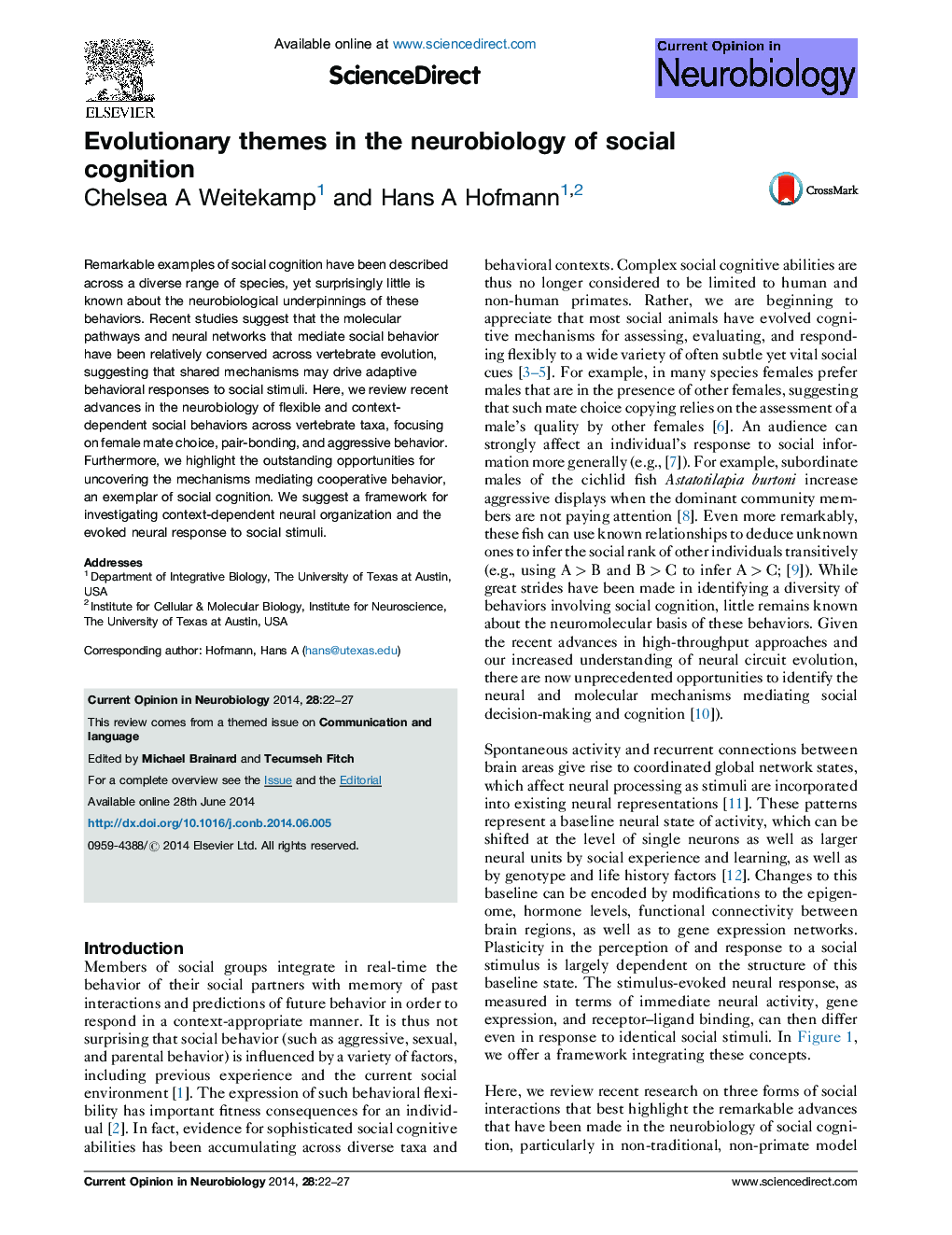| Article ID | Journal | Published Year | Pages | File Type |
|---|---|---|---|---|
| 6266651 | Current Opinion in Neurobiology | 2014 | 6 Pages |
â¢The neural mechanisms of social cognition are conserved across vertebrate evolution.â¢Teleost fishes provide insight into cognition in mate preference behavior.â¢Conserved neural circuits appear to regulate pair-bonding behavior.â¢Multiple pathways are involved in mediating flexible aggressive behavior.â¢The neurobiology of cooperative behavior should be a focus of research.
Remarkable examples of social cognition have been described across a diverse range of species, yet surprisingly little is known about the neurobiological underpinnings of these behaviors. Recent studies suggest that the molecular pathways and neural networks that mediate social behavior have been relatively conserved across vertebrate evolution, suggesting that shared mechanisms may drive adaptive behavioral responses to social stimuli. Here, we review recent advances in the neurobiology of flexible and context-dependent social behaviors across vertebrate taxa, focusing on female mate choice, pair-bonding, and aggressive behavior. Furthermore, we highlight the outstanding opportunities for uncovering the mechanisms mediating cooperative behavior, an exemplar of social cognition. We suggest a framework for investigating context-dependent neural organization and the evoked neural response to social stimuli.
